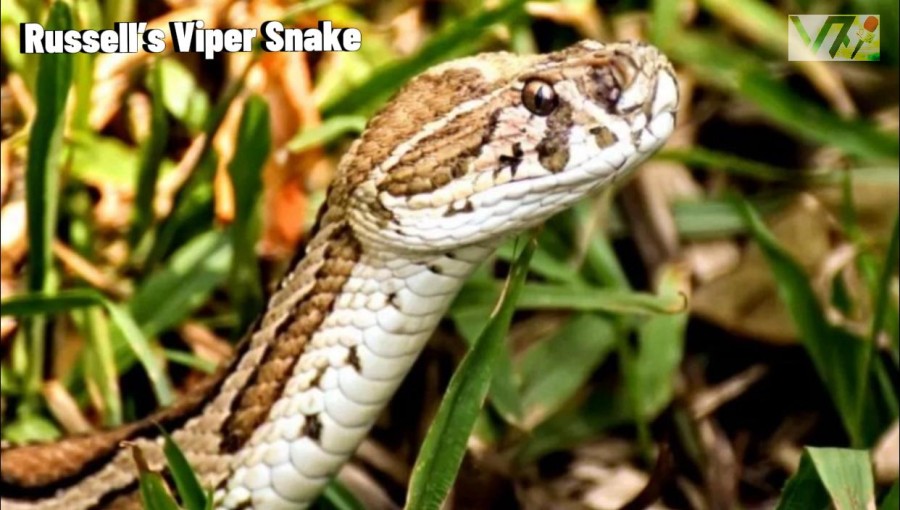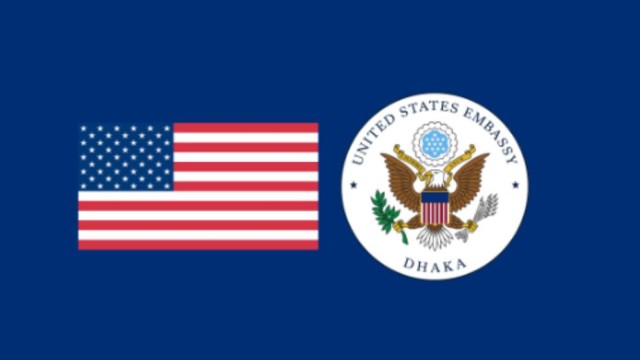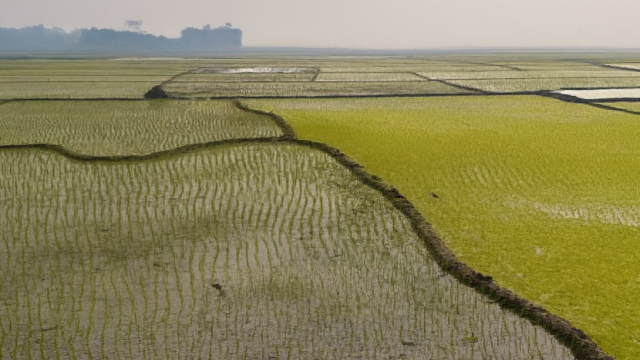Rajshahi, June 22: The terror of Russell's Viper has begun in Rajshahi, known for its Barind region. With the rise of water levels in rivers and canals, fishermen and farmers are gripped by fear. Locals in several areas have already killed these venomous snakes. Many people have been bitten by Russell's Vipers, especially since the rise in water levels of the Padma River has heightened the fear among residents of the char areas.
Reports indicate that on Friday (June 21) at around 9:30 am, a Russell's Viper was beaten to death in the Polashi Fatehpur char of Bagha Upazila along the Padma River. Similar incidents have occurred in the last few days in Tanore, Godagari, and Charghat. Though the presence of these snakes is not yet widespread, people are forming groups to kill any Russell's Vipers they encounter out of fear.
Joni Ahmed, a resident of Polashi Fatehpur char in Bagha Upazila, said he encountered a Russell's Viper while returning home with his fishing net on Friday morning. Frightened, he called for help, and several people came forward to kill the snake with sticks. He mentioned that another Russell's Viper was killed nearby five days ago, and the rise in the Padma's water level over the past two days has increased the sightings of these snakes.
New water has entered the Padma River in Bagha, Godagari, and Charghat Upazilas, causing heightened fear among the people in these border areas. Approximately 20,000 people from 3,000 families in 15 chars of Bagha's Chakrajapur Union are living in fear of the viper.
Residents have reported that the Russell's Viper is arriving with the new water in areas like Charkhanpur and Charmozardia. Bablu Dewan, Chairman of Chakrajapur Union Parishad in Bagha Upazila, said that around 20,000 people are in fear due to the new water bringing Russell's Vipers. He urged everyone to stay cautious and advised immediate hospital visits for anyone bitten by the snake. Awareness campaigns are being conducted to prevent panic.
Contacts for Reporting Russell's Viper Sightings:
Snake Rescue Team Bangladesh has requested people to report any sightings of this snake immediately. Raju Ahmed, the president of the rescue team, made this request via a Facebook post, urging people not to risk being bitten while trying to kill the snake. The team offers free snake rescue services.
If bitten by a Russell's Viper, do not visit traditional healers but seek immediate medical attention at the nearest hospital. Contact the Snake Rescue Team Bangladesh at: 01780932717, 01614589111, 01841597003.
Guidelines for Russell's Viper Bites:
Doctors advise that the average time to death after a cobra bite is 8 hours, a krait bite is 18 hours, and a Russell's Viper bite is 72 hours. Immediate administration of antivenom is crucial within this timeframe. Quick antivenom injection can neutralize the venom, potentially saving the victim's life or limbs.
What to Do If Bitten:
- Stay calm and seek immediate medical help.
- Do not go to traditional healers. Visit the nearest health complex, district hospital, or medical college hospital for specific antivenom treatment.
- Try to take a photo of the snake for identification by local forest officers and doctors.
- Minimize movement of the bitten area and remove any tight clothing or jewelry.
What Not to Do:
- Do not try to suck out the venom.
- Do not cut the bite area or attempt to bleed out the venom.
- Do not apply ice, heat, or chemicals to the wound.
- Do not leave the victim alone.
- Do not tightly bandage the bite area, as this can cause further damage.
Dr. Farhad Uddin Hasan Chowdhury, who has treated over 4,000 snakebite patients, wrote in a Facebook post about the three primary venomous snakes in Bangladesh: Cobra, Krait, and Russell's Viper. The Russell's Viper is particularly deadly. Despite efforts, 50% of Russell's Viper bite victims cannot be saved, highlighting the need for immediate medical intervention and support measures like dialysis and ventilation. Research is ongoing to develop an effective local antivenom for Russell's Viper bites, led by a team of scientists at Chittagong Medical College.
END/V7N/RAR/DK/






























Comment: